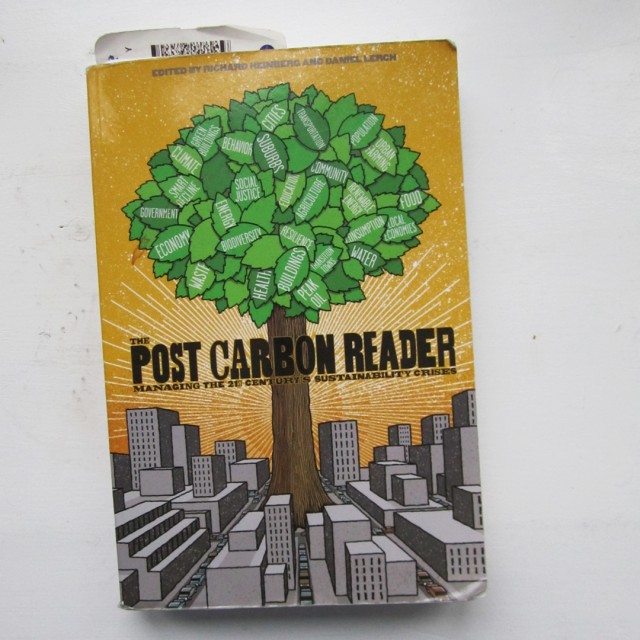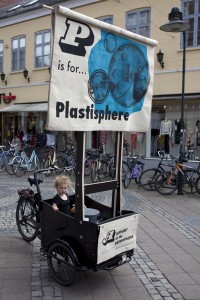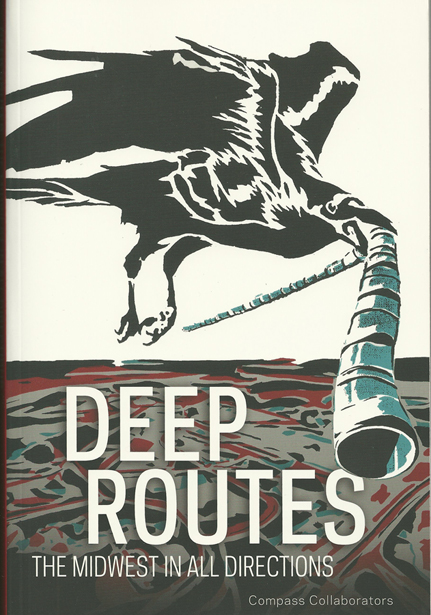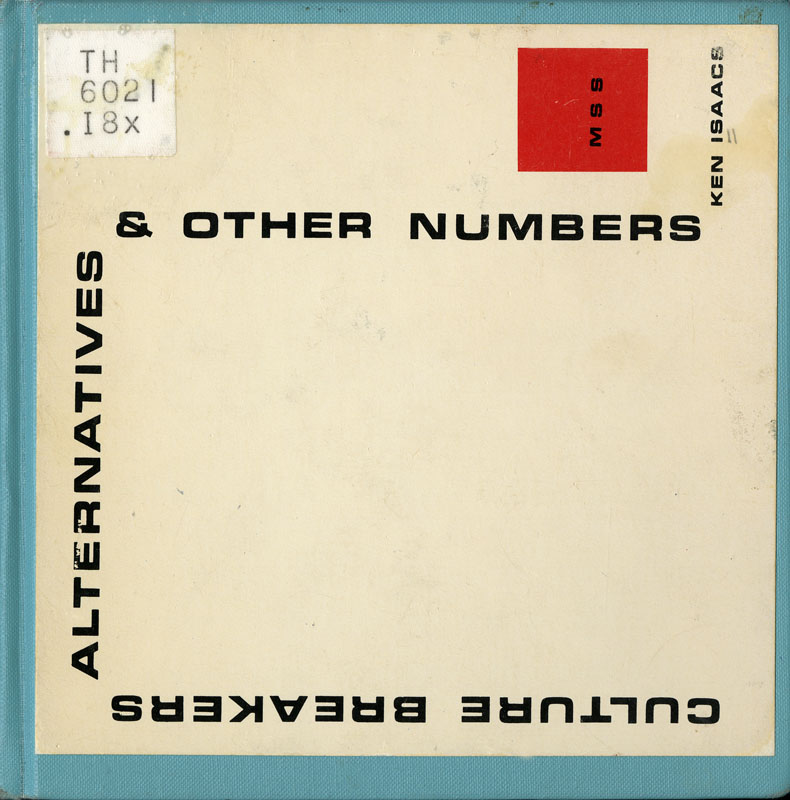Book Review: Post Carbon Reader
This collection of essays from the Post Carbon Institute (PCI), a think tank for creating a world beyond climate change, will change how you think about sustainability. The PCI is made up of thinkers from several different professions–economists, environmentalists, urban planners, farmers, activists, etc.–who are thinking beyond our current systems and ways of doing things. This book collects original essays and excerpts from books into one place, an encyclopedia for a post carbon world. The impetus for the PCI and the book is ” at some point in time, humanity’s ever-increasing resource consumption will meet the very real limits of a planet with finite natural resources.” This book is overwhelmingly useful.
The Post Carbon Reader (PCR) is divided into sections exploring the building blocks of society but from the perspective of a post carbon world-Food, Energy, Economy, Transportation, Waste, Health, and the controversial issue of Population, among several others.
Of course a book about climate change details society’s over dependence on fossil fuels, most interestingly in how our health care systems and our food systems, are perilously dependent on oil. Cindy L. Parker and Brian S. Schwartz explain how modern hospitals rely on the disposable, sterility of plastic, so much as to be non-functional without it. Michael Bomford writes about “Getting Fossil Fuels Off the Plate,” explaining that the majority of the energy costs in the way we consume food now is tied up in processing, packaging, and storage. He suggests local food economies to reduce dependence on a fossil-fuel dependent fuel chain.
The PCR not only tries to explain climate change and its effects but offers suggestions for life in this new world we have created. This ultimately starts with education. Zenobia Barlow, who writes about developing ecological literacy, suggests changing school curricula to foster a “deep knowledge of place” in children. Doing this through courses that focus on cultivating ecological and social responsibility. In the studies presented in her chapter, students respond by learning beyond the classroom, in their homes, neighborhoods, and parks, becoming more aware of the surrounding world and their effect on it. My favorite “rethinking education” section was Nancy Lee Woods’s chapter on “Community Colleges,”re-envisioned as educational hubs for retraining adults in agriculture, culinary arts, and, yes, conflict resolution. Woods points out that disputes and conflicts are bound to arise in a world in transition and we will need people to deal with this effectively.
But the main take away from the PCR is resilience. The book defines resilience as “the capacity of a system to withstand disturbance while still retaining its fundamental structure, function, and internal feedbacks.” Resilience is a more productive concept than the overused “sustainability.” Our hyper-managed and simplified systems of agriculture, for example, are not resilient and become increasingly susceptible to pests and natural disaster. A system that has lost its resilience is inflexible and cannot adapt. The PCR is a handbook for adapting to a warmer, more precarious post-carbon world.
On the PCI website, you can access several PDF’ed excerpts from the book. The PCI wants to share this information, take advantage here.
Radio Aktiv Sonic Deep Map (2013)
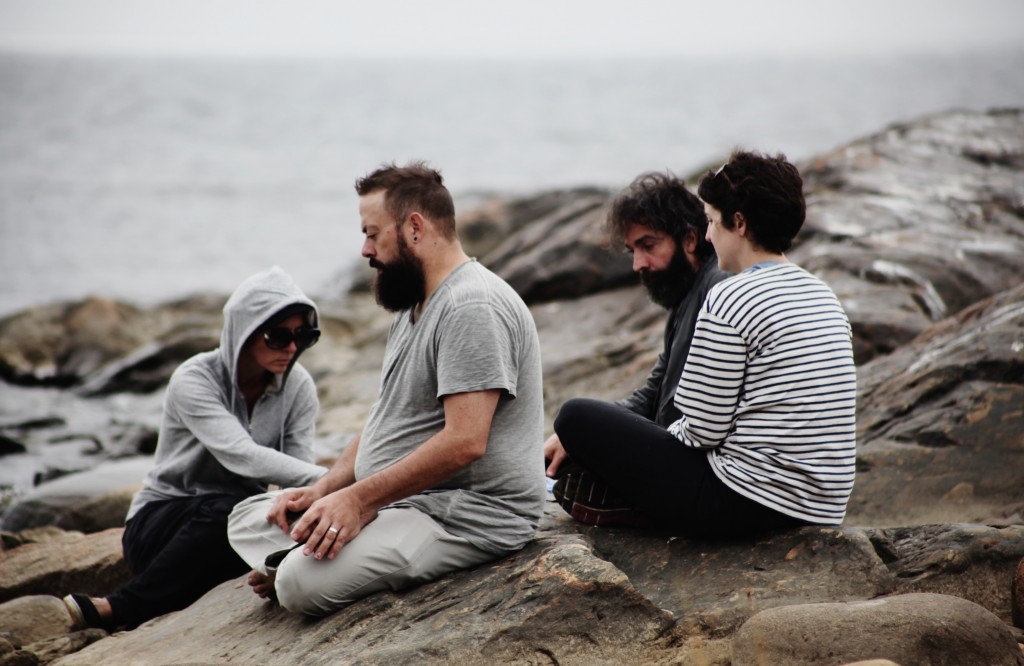
SUPERKILEN – Extreme Neoliberalism Copenhagen Style
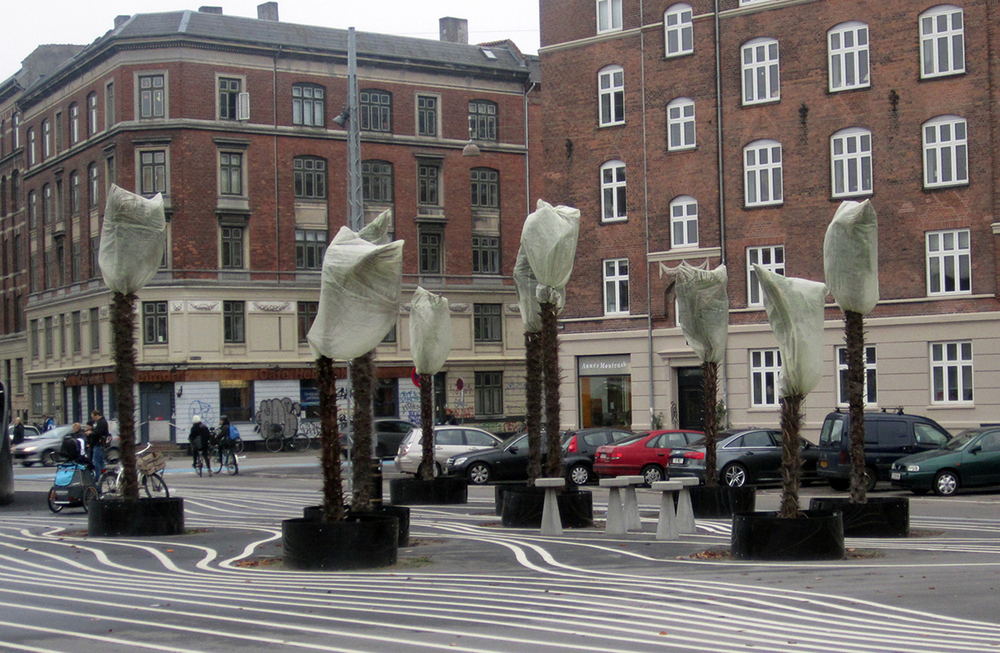
Read Brett's essay about the park.
Download our guide:
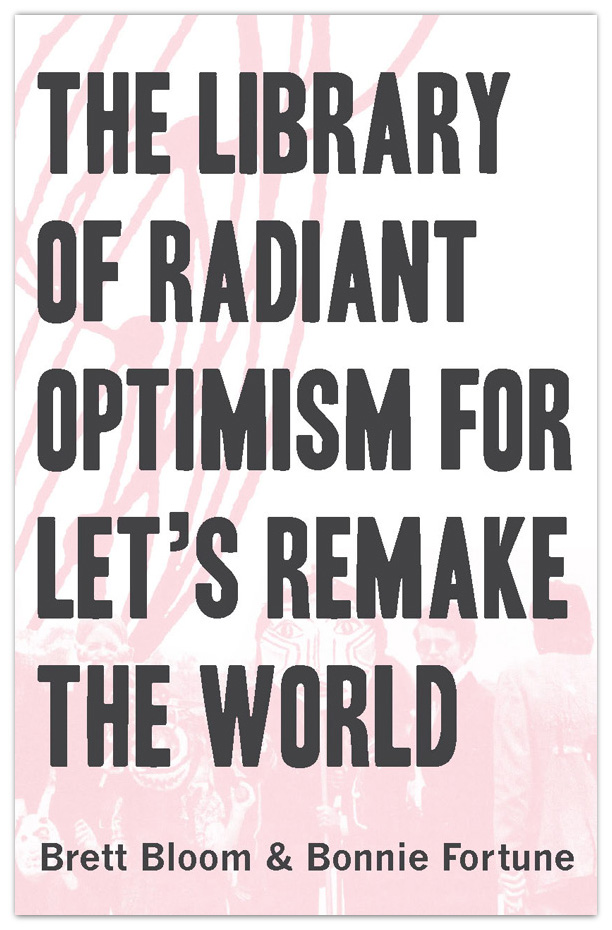
This is our guide to how-to books from the counterculture of the 60s and 70s. Click to get the download page.
Categories
- Agriculture (11)
- Animal sounds (1)
- Artist parents (19)
- Arts and culture (106)
- Bees (3)
- Book reviews (14)
- Books (18)
- Critical essays (5)
- Daily Photo (5)
- Design (36)
- Dirt (11)
- Environmental activism (43)
- Exhibitions (24)
- Farms (11)
- Forest (7)
- Friday connect (15)
- Growing (42)
- Habitat (38)
- Homesteading (16)
- Interviews (15)
- Kitchen (14)
- Living structure (9)
- MISC (15)
- Mythological (2)
- Neighborhood (83)
- Ocean News (1)
- Our Art Work (21)
- Personal – Design/Art (3)
- Play (2)
- Playground (4)
- Projects (21)
- Public space (53)
- Resilience (13)
- Sea Side (2)
- Sojabønner (2)
- Tofu (8)
- Vermont correspondence (7)
- Water (3)
- Wednesday picture (31)
- Workshop (1)
Video interview:
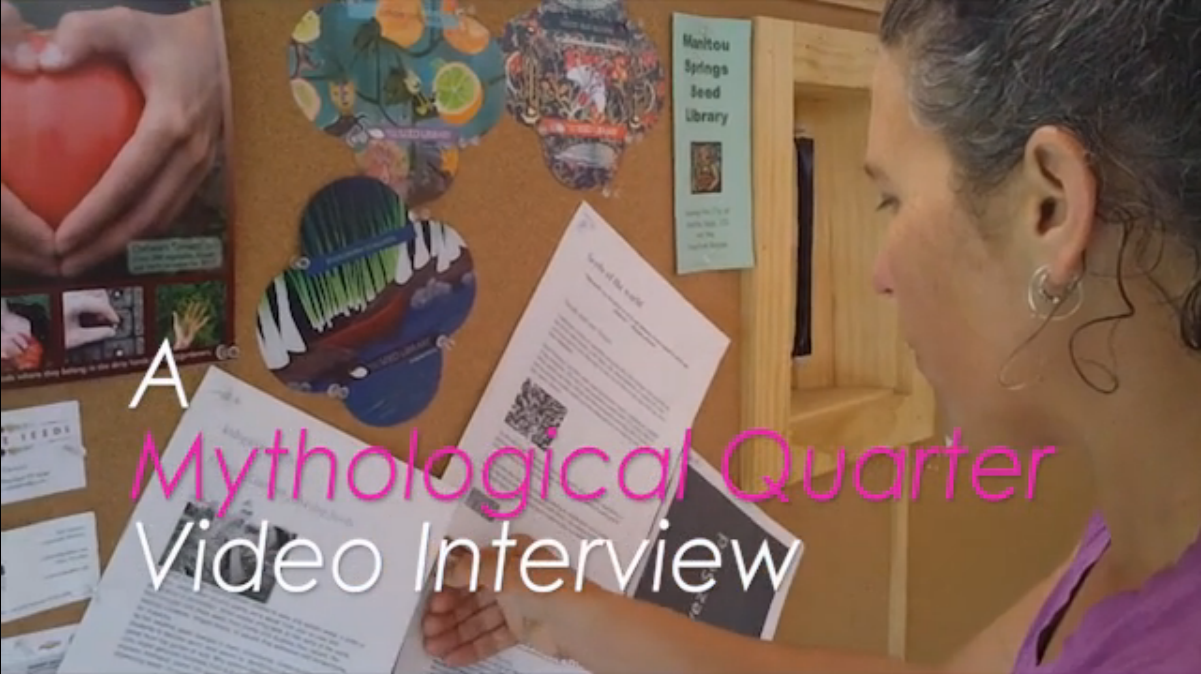
Watch our interview of SeedBroadcast, a mobile project that is part seed library and part seed-saving-story-collecting machine-recording the stories of seed saving, farming, and food sovereignty work being done around the US.
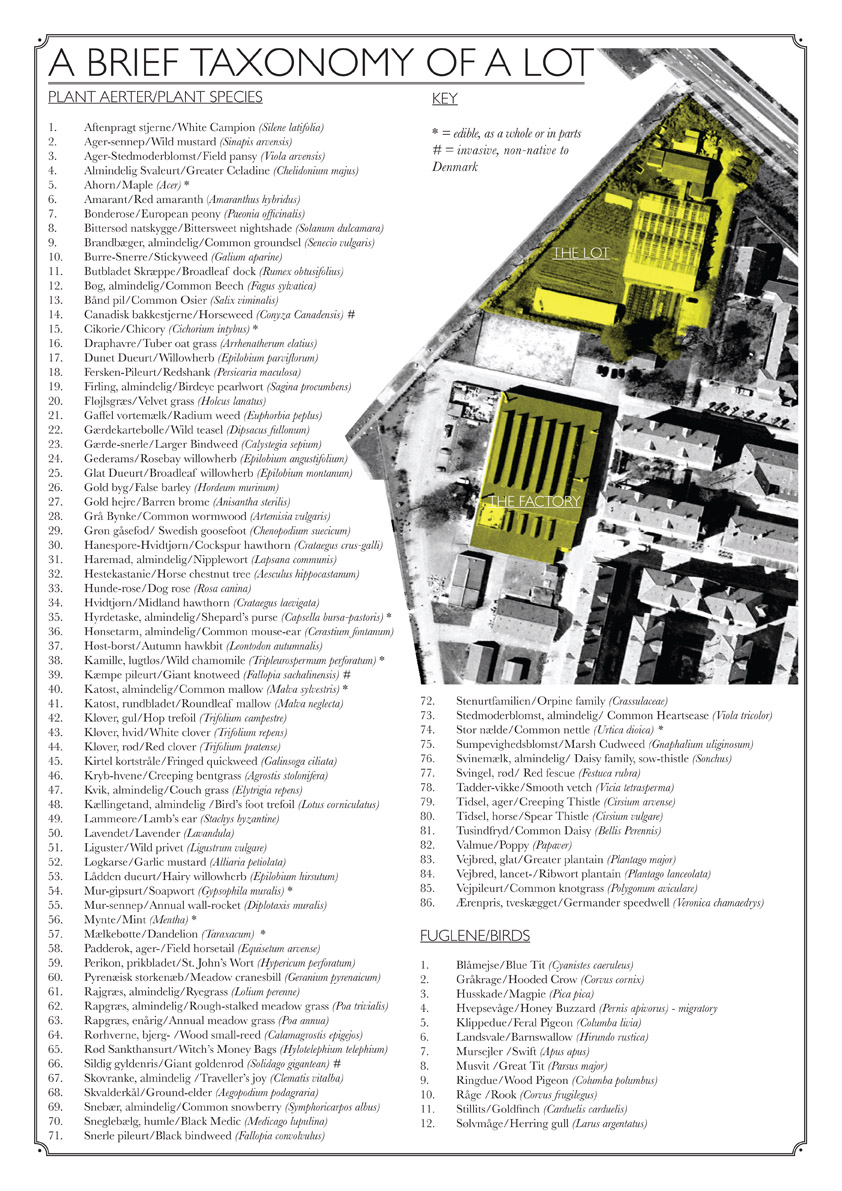
Download a poster Bonnie made about biodiversity in a vacant lot in the Amager borough of Copenhagen, in collaboration with biologist, Inger Kærgaard, ornithologist, Jørn Lennart Larsen and botanist, Camilla Sønderberg Brok: A BRIEF TAXONOMY OF A LOT
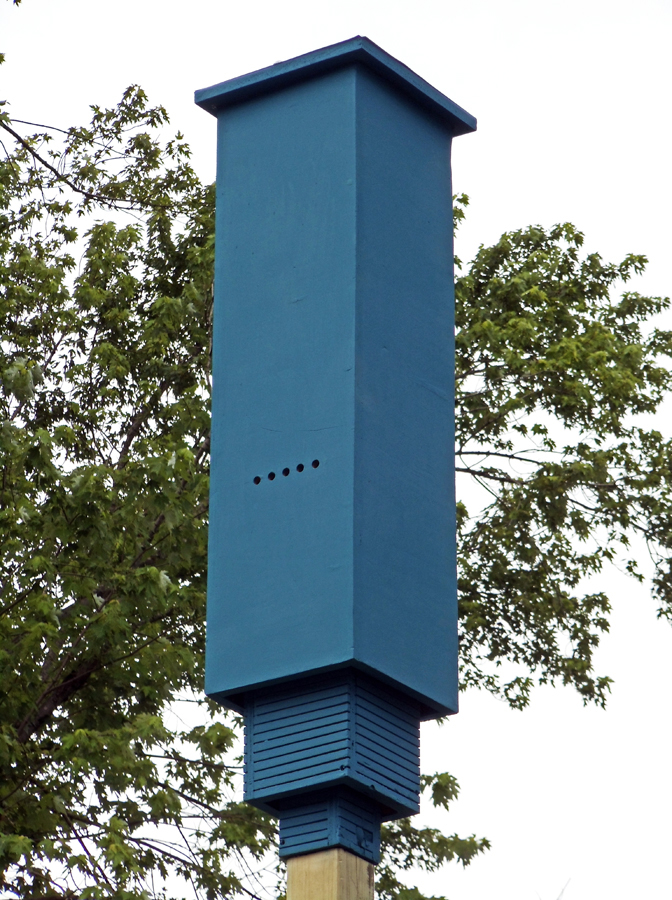
We made and installed a network of bat houses in Urbana, Illinois, to support the local and regional bat population, but also to begin a conversation about re-making the built environment.
READ MORE
BOOK REVIEW:
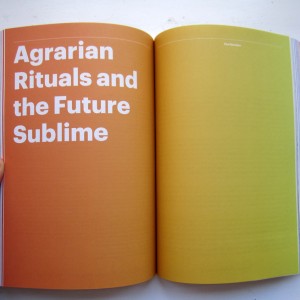
We write often about artists and art groups that work with putting ‘culture’ back in agriculture. Here is a new favorite: myvillages, a group of three women based in Germany, the Netherlands, and the UK. Read more...
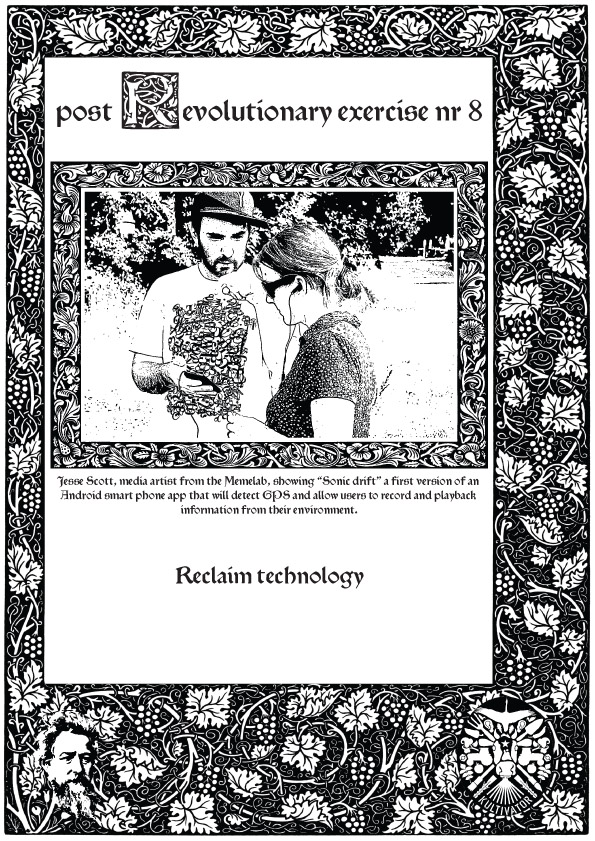
Post Revolutionary Exercises
We really admire the dedicated hard work of Kultivator who seeks to fuse agriculture and art in their work. Click this sentence to get a PDF of their poster collection called "Post Revolutionary Exercises."
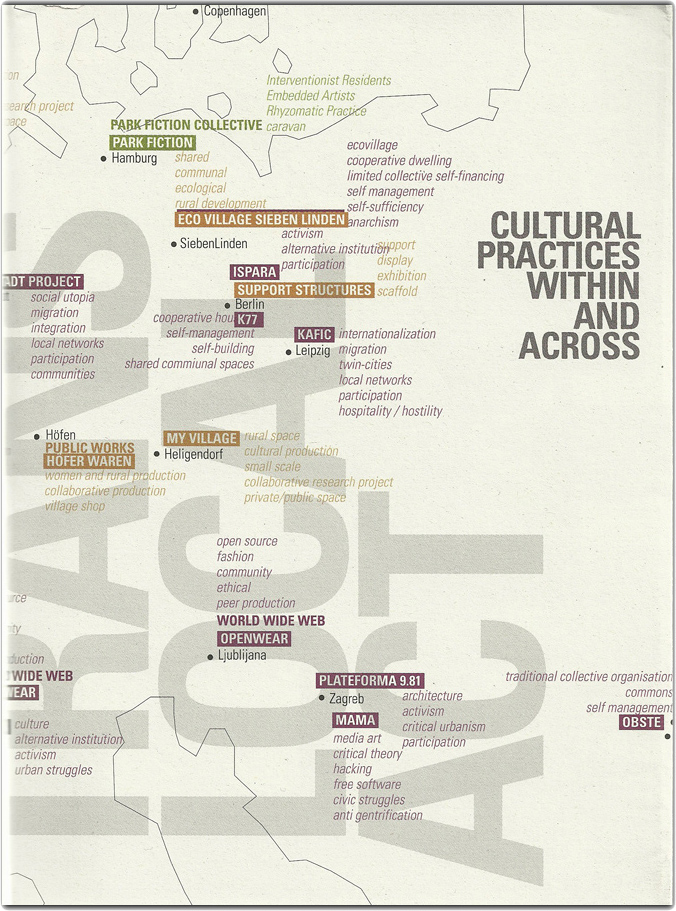
Cultural Practices Within And Across
This amazing book networks urban and rural resilience and sustainability projects around the world. Deeply inspiring projects in Romania, Paris, San Francisco, and elsewhere.
• Read our review of the book.
• Buy the book.
• Download the book.

